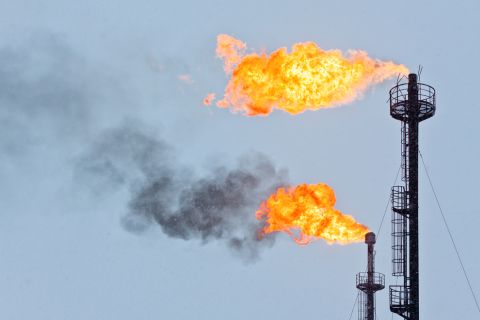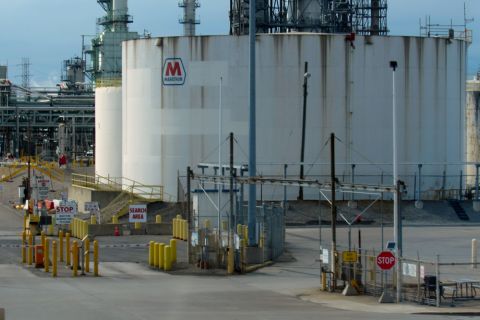Poland’s prime minister has raised the country’s security level on energy infrastructure outside its borders, the government's security center said on Oct. 6.
The move comes days after blasts were detected on the Nord Stream pipelines carrying Russian gas across the Baltic Sea to Germany and after the launch of the Baltic Pipe supplying Poland from Norway.
Poland has moved to the second highest of its four-level security preparedness alerts, Bravo, which foresees an increased threat of a terrorist attack on an unspecified target, the security center said.
The new Baltic Pipe which started operating on Oct. 1 crosses Nord Stream pipelines near Bornholm island in the Baltic Sea.
No details were revealed about how the higher alert level will impact security operations. Poland's top energy security official told Reuters last week that measures taken to protect Baltic Pipe were a state secret.
Within Poland, the Bravo level obliges security services to carry firearms and make checks of people, cars and public buildings.
Poland’s energy infrastructure outside the country includes oil refineries in Lithuania and the Czech Republic, controlled by PKN Orlen.
The Baltic Pipe’s operational start launch came one day after ruptures were detected on the Nord Stream pipelines.
Polish Prime Minster Mateusz Morawiecki said those ruptures were an act of sabotage. Read full story
While Polish security services have been monitoring the Baltic Pipe, the project did not formally take on the status of critical infrastructure until it started pumping gas.
“Procedures [aimed at putting the pipeline on the list] are ongoing with the involvement of all relevant services,” Mateusz Berger, the government's representative for Strategic Energy Infrastructure, told Reuters.
A 600-megawatt (MW) Sweden-Poland undersea cable which also crosses the damaged Nord Stream pipelines was intact after the ruptures.
It was halted for maintenance last month and is expected to resume operations this weekend.
Recommended Reading
Green Swan Seeks US Financing for Global Decarbonization Projects
2024-02-21 - Green Swan, an investment platform seeking to provide capital to countries signed on to the Paris Agreement, is courting U.S. investors to fund decarbonization projects in countries including Iran and Venezuela, its executives told Hart Energy.
Marathon Petroleum Sets 2024 Capex at $1.25 Billion
2024-01-30 - Marathon Petroleum Corp. eyes standalone capex at $1.25 billion in 2024, down 10% compared to $1.4 billion in 2023 as it focuses on cost reduction and margin enhancement projects.
Humble Midstream II, Quantum Capital Form Partnership for Infrastructure Projects
2024-01-30 - Humble Midstream II Partners and Quantum Capital Group’s partnership will promote a focus on energy transition infrastructure.
BP’s Kate Thomson Promoted to CFO, Joins Board
2024-02-05 - Before becoming BP’s interim CFO in September 2023, Kate Thomson served as senior vice president of finance for production and operations.
Magnolia Oil & Gas Hikes Quarterly Cash Dividend by 13%
2024-02-05 - Magnolia’s dividend will rise 13% to $0.13 per share, the company said.





